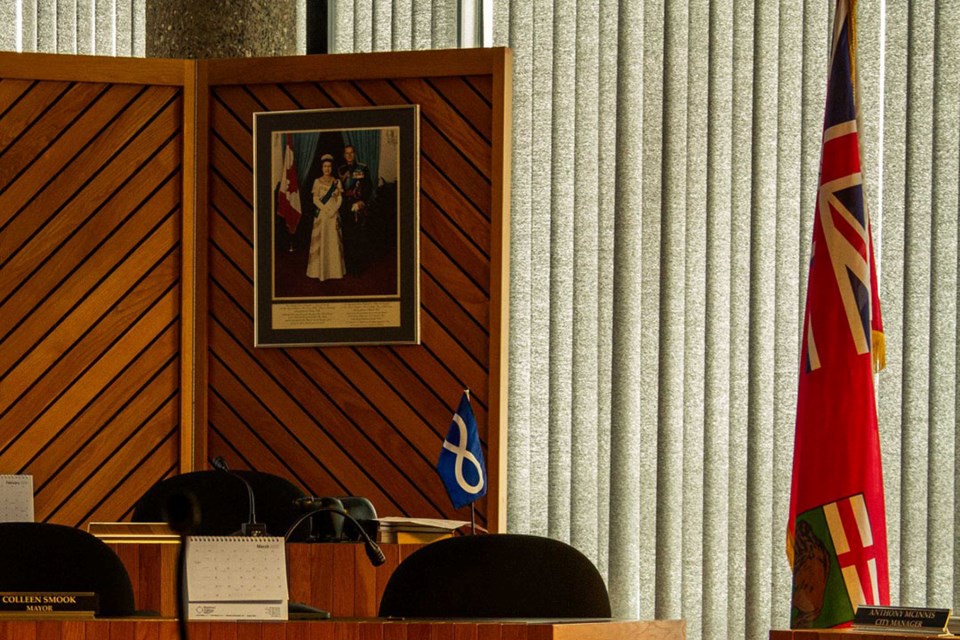The decision by a majority of Thompson city councillors made on April 11 to not reduce their ranks by two for the next term of office, which begins after the Oct. 26 municipal election and continues for four years until the next election in October of 2025, is easily justifiable. The reduction would basically save the city, in the grand scheme of things, a pittance. There is some merit to arguments that more councillors are better for one reason or another, up to a point, as we have all heard that too many cooks spoil the broth and about the decision-making ability of committees.
Had the vote gone the other way, it would have been defensible too. Many similar-sized communities make do with fewer councillors, without having noticeably worse, and perhaps even better, outcomes than here in the Hub of the North.
In essence, whichever way the vote turned out, people would have been hard-pressed one way or another to say that the decision was wrong. It was one of those rare win-win scenarios in politics, where those in charge are neither damned if they do or damned if they don’t. Really, it should have been a fairly easy decision to make.
The main problem with the process is that it took so long and essentially all for nothing. If you’re going to stick with the status quo, why not make that determination early in the process and move on to more important priorities, like, oh, this year’s budget, perhaps? Coun. Jeff Fountain, the councillor who first floated the idea (this term at least; it was also considered but ultimately shelved in the final year of the pervious council’s term, though the reasons for not proceeding then were slightly different than they are now), was well within his rights to do so, but if a majority of councillors felt deep down at that time that making a reduction wasn’t a good idea, they should have stated their objections as forcefully as possible and made it clear that they would never support such a measure. Had they done so, perhaps the idea would have died on the vine. In that alternate history, city staff wouldn’t have wasted time examining other communities and drawing up a bylaw to no end.
Even if it was only after the committee of the whole, which, we may remind you, is made up of the exact same people as council, came to a consensus to let the idea move forward to the draft bylaw stage, it could have been nipped in the bud and defeated at first reading. People who voted the same way on second reading as first reading have nothing to explain — they made a decision and stuck to it, one way or another — but those who flip-flopped, which is not necessarily a bad thing — not changing your mind based on new or changing information is not always an admirable quality — may want to explain why they helped push something forward only to kill it at the next stage. Perhaps they wanted to hear public input, which was fine. However, public input, minuscule though it was, indicated support for reducing the number of councillors. Were those who voted for the bylaw at first reading and against it at second reading actually particularly swayed by public sentiment? It doesn’t appear so, so why go through a charade?
Once it had passed first reading, however, there was yet another chance to put the matter to rest. At a meeting in late March, a motion to remove the votes on second and possibly third reading from the meeting agenda was supported, which resulted in the decision being put off until last week. If councillors had discussed their feelings amongst themselves and the way they were likely to vote prior to that meeting, they could have defeated it then instead of, in effect, tabling it, even though some thought, erroneously, that they had killed the issue.
If, at any time, councillors opposed to the reduction had made a concerted effort to quash the proposed bylaw, it seems that they could have done so, considering the fact that even the person whose idea the draft bylaw was based on ultimately decided not to support it. There are plenty of worthwhile things for council to spend their time on. The main flaw with the decision on the councillor reduction isn’t they way it turned out but the circuitous road taken to get there. That path, in itself, is a pretty good example of why having more people on a committee doesn’t always make it better, or more efficient, when it comes to making decisions in a timely fashion.



